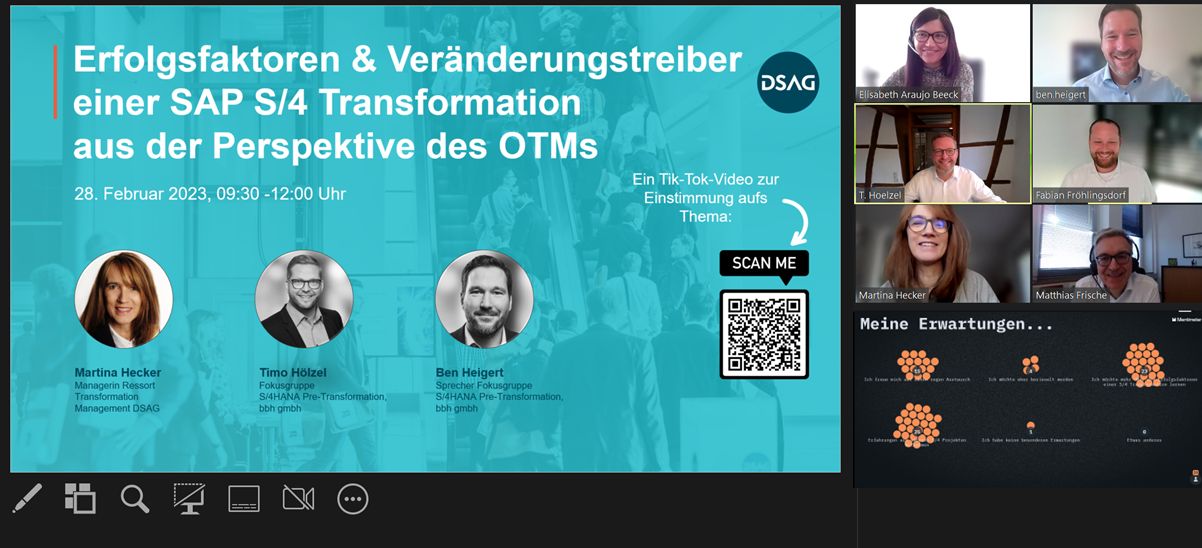People-focused Management in Crisis Situations

A period of economic downturn is generally followed by a recovery. Managers and organizations are usually prepared for economic depressions, as this follows the natural volatility of the markets. However, not all crises are the same. In addition to cost-cutting initiatives and government financial support aimed at stabilizing the market and helping organizations and financial institutions to recover at the system level, it is crucial for managers to focus on their employees.
Focusing on people in crisis situations means reducing their insecurity and building confidence in the way out of the crisis. It is important to ensure that in a stressful, sometimes uncontrollable situation, everyone pulls together and collaborates. How can this work? Which skills from the large management toolbox are now particularly in demand?

We as human beings love to have things firmly under control. And when things get out of control, a feeling of fear and insecurity is often unavoidable. Hysteria and pure activism in response to a critical situation are understandable – but mostly counterproductive. Often, such behavior arises from weak communication, a boiling gossip factory – and lack of leadership.
The first imperative for managers – from the board of directors to the team leaders – must therefore be: Show maximum visibility with your team and create new opportunities to be in contact with your employees quickly – both actively and passively. Always be aware that it is you from whom people in the company want answers and guidance and whom they (want to) trust. In other words, even when things are hectic and you yourself are insecure or worried: stay calm and demonstrate confidence and aplomb. Easy to say? Some of the following thoughts and impulses will help you along the way.

Panic and rash decisions in response to a disturbing event rarely lead to a good result. We know from dual process models that in judgment and decision-making theory there is both a fast, intuitive and automatic system and a conscious, analytical system by which information is processed. However, while we tend to access the intuitive system in critical situations, we should proceed in a well thought-out and rational way right now.
The crisis must be demystified for the employees. Clear words must be found for this: Do not gloss over anything, do not conceal anything, but communicate clearly and – often there is no other way in highly dynamic situations – in “little bites”. This reduces rumors and speculation and improves the general mood and mindset in the organization. And it helps to talk to the team more often, maybe even daily, to give an update and be available for a chat. If employees not only passively receive the relevant information, but can also express their thoughts and questions, they feel taken seriously, valued and involved in the process.

Special situations require special solutions – a phrase often heard in times of crisis. But are short-time work, crisis meetings or travel bans really special solutions, or rather obvious reactions that everyone already knows and expects?
Isn’t it rather the case that the typical human reflex is to focus even more strongly on already proven patterns of behavior in stressful situations? It is now particularly important to make these unconscious behavior patterns clear, so that we as human beings can use our full potential, our entire repertoire of actions. The patterns of behavior that are already fueling public debate and the news situation are risk aversion and worst-case scenarios as well as the impulse decisions and actionism resulting from fear. Of course, these aspects are currently of great relevance. But they carry the danger of losing sight of the big picture and original objectives. As managers with responsibility for people, however, the “virtues” of speed, problem awareness and consistency should be complemented by an empathy for one another, attention to opportunities and developments, flexibility and the space for new ideas and future perspectives. You can find out more about the diverse demands on managers in this crisis and how to consciously meet these demands in our blog.

In crisis situations, routines and the existing mindset are put to the test. Human skills such as emotional intelligence, empathy and cooperation are crucial to finding a way out of the crisis without causing lasting interpersonal damage. In order to implement the measures taken successfully and with the necessary consistency, it is more important than ever to act as one within the management team, thus demonstrating sovereignty and confidence. When unavoidable, painful decisions are made, it is crucial that a management team consults with key stakeholders or opinion leaders on these steps at an early stage. Timing, dosage and communication can be discussed with these key players – which emphasizes the relevance of these measures and helps to increase acceptance.
Crisis situations usually require quick and decisive action at the process and system level. But the people who ensure the implementation of these measures must not be forgotten, especially when looking at the “post-crisis period”. The current situation has the potential to incredibly strengthen the climate and cohesion in society, in the family, but also in every company and even the smallest team. If, however, this human perspective is forgotten in crisis management, the damage to cooperation will be very serious and the reconstruction work will be very hard. Whether the former or the latter will happen for a company or a team is determined to a very large extent by the behavior of the management team.






